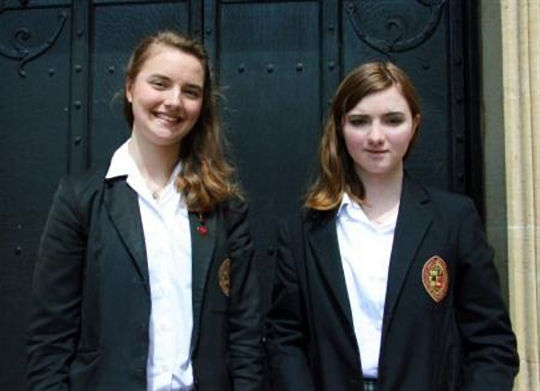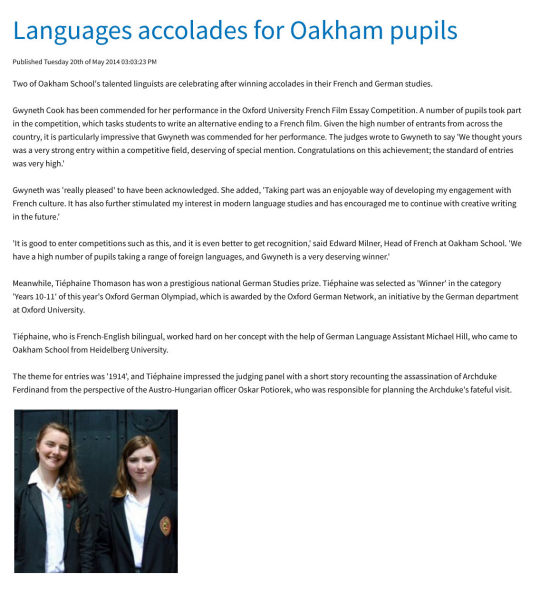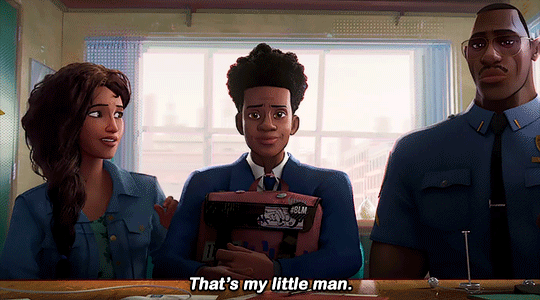#Language Education
Explore tagged Tumblr posts
Text
y'all i have to ask- does no one say "he crept" "she swept" "they dreamt" "we leapt" anymore? it seems like everything i read now is "he creeped by" "she sweeped the floor" "they dreamed of big things' "we leaped for joy" and. just.
jesus weeped.
#if any language would change so much in only my lifetime it would be english#or maybe it's more of a change in the publishing world? or in education?#i'm not judging anyone i just feel... old#nobody: . me: WHAN that Aprille with his shoures soote#i like my verbs as irregular as i am#for reference i'm usamerican by way of texas the midwest and california#language#english#irregular verbs#linguistic drift if that's the right word#language education#linguistics
7 notes
·
View notes
Text
Over 90% of people kick off their Hebrew learning solo or with apps.
It makes sense, right?
It's handy, flexible, and you get to call the shots on when and where.
But here’s the catch:
Going it alone can lead to patchy learning.
You might find yourself hopping from one resource to another, trying to piece together a full picture.
This can leave you with more questions than answers, using up your time, effort, and sometimes even cash - without clear direction.
When you do decide to level up by choosing a structured path — like a dedicated program, an app, or a tutor — and you start noticing things like doubts about your ability, lack of progress despite hard work, or dwindling enthusiasm, take that as a big red flag.
These aren’t just little bumps; they’re signs that your learning strategy might not be the right fit.
Let's be clear:
Feeling a bit out of your comfort zone is part of learning a new language. That's normal.
But there’s a huge difference between the natural challenge of picking up new skills and feeling like you’re just not getting anywhere.
Hebrew is a rich, beautiful language, but not all teaching methods make it clear, easy, or motivating as it cna be.
It’s easy to feel overwhelmed and confused without the right guidance.
But this doesn’t have to be your learning story.
Imagine a learning experience where:
- Your effort is clearly reflected in your progress.
- Doubts about your ability turn into confidence in your skills.
- Initial enthusiasm evolves into a deep, lasting passion.
- Confusion gives way to clarity and understanding.
- Your confidence in Hebrew grows with every lesson.
That’s what learning Hebrew should feel like!
I’m here to offer a different approach, one that gets you thriving in Hebrew.
If you're ready to transform your Hebrew learning experience and see real results, let's take this journey together.
Rediscover your love for Hebrew, and see just how rewarding learning can be when you have the right guide, method, and support.
#hebrew#learnhebrew#langblr#hebrew langblr#language#languages#language and culture#language blog#language classes#language development#language education
2 notes
·
View notes
Text
5 Advantages to Learning a Language
1) Each language is its own worldview. This allows you to see the world from the specific language you are learning.
2) Promotes respect among cultures that are different from you because when you learn a language, you also learn the culture. Language is the heart of EVERY culture.
3) If you are learning an Indigenous language, you are helping maintain its usage so it does not fall asleep and lose usage. By doing this, you are helping to halt its repression, which has happened historically.
4) Helps your brain function such as: -Memory improvement -Longer attention span
5) Learning a new language enriches your vocabulary not only in the language you are learning but also in your native tongue. This improves communication skills in different social settings.
We encourage people to learn an Indigenous language by taking a class with an L1 (native speaker) or an L2 (near-native level speaker) who has learned from a native speaker. This will ensure that you learn the correct pronunciation. This will also ensure that you learn about the culture.
For Indigenous Language Learning Resources, go here.
#language learning#language learning community#speaknahuatl#nahuatl#language revitalization#language education
11 notes
·
View notes
Text



Languages Accolades for Oakham Pupils
published Tuesday 20th of May 2014 03.03:23 PM
Two of Oakham School's talented pupils, Gwyneth Cook (Fourth Form) and Tiephaine Thomason (Fifth Form), are celebrating after winning accolades in their French and German studies.
Gwyneth Cook, who has been educated entirely at Oakham School, has been commended for her performance in the Oxford University French Film Essay Competition. A number of pupils took part in the competition, which tasks students to write an alternative ending to a French film. Given the high number of entrants from across the country, it is particularly impressive that Gwyneth was commended for her performance. The judges wrote to Gwyneth to say 'We thought yours was a very strong entry within a competitive field, deserving of special mention. Congratulations on this achievement; the standard of entries was very high.'
Gwyneth was 'really pleased' to have been acknowledged. She added, 'Taking part was an enjoyable way of developing my engagement with French culture. It has also further stimulated my interest in modern language studies and has encouraged me to continue with creative writing in the future.' 'It is good to enter competitions such as this, and it is even better to get recognition; said Edward Milner, Head of French at Oakham School. 'We have a high number of pupils taking a range of foreign languages, and Gwyneth is a very deserving winner.'
Meanwhile, Tiephaine Thomason, who has been educated at Oakham School and previously the Lycée Français Marie Curie de Zurich, has won a prestigious national German Studies prize. Tiephaine was selected as 'Winner' in the category 'Years 10-11' of this year's Oxford German Olympiad, which is awarded by the Oxford German Network, an initiative by the German department at Oxford University.
Tiephaine, who is a French-English bilingual, worked hard on her entry with the help of German Language Assistant Michael Hill, who came to Oakham School from Heidelberg University. The theme for entries was '1914', and Tiephaine impressed the judging panel with a short story recounting the assassination of Archduke Ferdinand from the perspective of the Austro-Hungarian officer Oskar Potiorek, who was responsible for planning the Archduke's fateful visit.
—
Oakham School is a co-educational boarding and day school for pupils from Year 6 through to Year 13 located in the heart of rural England. It offers education through to the IB Diploma or A-Levels.
Read more on: https://www.isbi.com/school-news/
#ISBI#20th May 2014#20th May 2014 news article#news article#Language Accolades for Oakham Pupils#Oakham School#Oakham School languages#Oakham#Rutland#England#Independent Schools news#Independent School accolades#English Independent Schools#English Independent School accolades#Gwyneth Cook#Edward Milner#Tiephaine Thomason#Tiéphaine Thomason#Michael Hill#French language education#German language education#language education#French language#German language#language#French#German#history#social history#cultural history
1 note
·
View note
Text
こんにちは。。。
???日本語好きですか
#language#japanese#chat#friends#japan#nihongo#konnichiwa#goodmormorning#hi#hello world#japan tour#japan girl#languageexchange#language education#language friends#say hey#日本語#友達#なかま#日本
3 notes
·
View notes
Text
🎉Celebrating IU Day 2025!
🌟 The day is here! Let's celebrate the IU community. The IU Language Workshop gives students the tools to master languages. Your support opens new horizons. Donate today!

#iu#iulanguageworkshop#summer program#indiana university#immersion#study abroad#75th anniversary#hls#hamilton lugar school#language#europe#asia#united states#africa#languages#linguistics#language stuff#grammar#20+ languages#certification#proficiency#travel#language education#language exchange#beginner friendly#career growth
0 notes
Text
the fact that languages change over time is so funny to me. we have thousands of language that work perfectly well, but no that's not good enough, we need to keep fiddling with them. no not making them better, just making them different. why? well, humans enjoy making up words and phrases. for fun. enrichment activity
#sure every few hundred years languages become unrecognizable to their previous form#and modern readers need special education to be able to translate & analyze any part of an immense written inheritance of historical work#which is a huge barrier and dissuades many from investigating the cultural foundations of the societies they live in#but consider: the constant human yearning for New Slang
13K notes
·
View notes
Photo
As someone who spent nearly ten years being formally educated in Spanish I have to call BS.
Most Spanish teachers in America are either Latin Americans themselves or learned Spanish from Latin Americans.
Spanish teaching in America tends to keep the base of the language while ignoring the less common variations. This includes things like the /ʒ/ of "y" & "ll" in the Southern cone, it includes the "vos" pronoun and conjugation that's used in some parts of Central America but it also definitely includes the /θ/ pronunciation of "z" & "c" and the "vosotros" form which is almost entirely limited to Spain.
I didn’t learn anything about Vosotros until I was actually in Spain.
My original Spanish teacher learned Spanish during the Cuban Refugee crisis, so she was mostly familiar with that, but the standard curriculum smooths out the regional variations to the point where if it resembles any dialect in particular it ressembles Colombian or Mexican Spanish. Mexico specific elements do tend to seep through more often because of the proximity.
Exceptions exist of course but odds are that the second-generation aren't struggling because of a Euro-centric curriculum.
I live in Spain, in the last Week I've spoken to Spanish speakers from all over the world, from Paraguay to Nicaragua. Dialects are not usually a problem; the only major exceptions would be people from regions with a lot of influence from Indigenous American languages, and those people would likely struggle communicating with people from their own country.
For second-generation immigrants the more likely reason is that either have some sort of undiagnosed learning disorder or more likely they don’t actual speak Spanish that well.
This isn't necessarily a dig, but receptive bilingualism is something that exists, decent to near-perfect comprehension with next to no speaking ability and of course lot's of people think that they Speak Spanish because they understand their parents, but they also don't have any ability to speak of things outside of the half dozen topics common in their household.
American-born children also have a tendency to import English grammar, much to the chagrin on native speakers.
So I will repeat that there are exceptions, I have no doubt that someone out there has been trying to take Spanish classes with an iberian-style speaker for years, but usually the issue has nothing to do with that.




Are you trying to kill your mother? Spider-Man: Across the Spider-Verse (2023)
67K notes
·
View notes
Text
Do you think it's possible to actually forget your first language?
I've been asked several times if I've become so integrated into Italian life that I might forget. After all, I've spent half my life in Australia and the other half in Sicily.
I haven’t forgotten English. Sometimes, I forget a word in Italian and only have the English word in my head. Other times, the Italian word will come, and I will lose the English equivalent. The two languages seem to shift and move within my mind and come to me as needed.
Read my thoughts on language in my latest Substack post.
1 note
·
View note
Text
3 ways to sound polite in Arabic! 😊
Learn these Arabic phrases to sound respectful and polite when talking to others:
- 3afwan - عفوًا: Excuse me - Ta3mol ma3roof - تعمُل معروف: Can you please? - Law sama7et - لو سمحت: Can you please?
Let us know in the comments what words you use in your language to sound polite! 💬 Master Arabic with 3arabian’s flexible one-to-one courses! Dive into private sessions tailored to your schedule and goals. Start personalizing your learning journey today.
Check One-to-One Course
#Arabic#3arabian#Learn Arabic#Arabic Learning#Language Learning#Language#Arabic Language#Language Education#Education#Learning#Arabic Tutor
1 note
·
View note
Text
94% of people kick off their Hebrew learning solo or with apps. It makes sense, right?
It's handy, flexible, and you get to call the shots on when and where. But here’s the catch:
Going it alone can lead to patchy learning. You might find yourself hopping from one resource to another, trying to piece together a full picture.
This can leave you with more questions than answers, using up your time, effort, and sometimes even cash without clear direction.
When you do decide to level up by choosing a structured path—like a dedicated program, an app, or a tutor—and you start noticing things like doubts about your ability, lack of progress despite hard work, or dwindling enthusiasm, take that as a big red flag.
These aren’t just little bumps; they’re signs that your learning strategy might not be the right fit.
Let's be clear: feeling a bit out of your comfort zone is part of learning a new language. That's normal. But there’s a huge difference between the natural challenge of picking up new skills and feeling like you’re just not getting anywhere.
Hebrew is a rich, beautiful language, but not all teaching methods unlock its full potential. It’s easy to feel overwhelmed and confused without the right guidance. This doesn’t have to be your learning story.
Imagine a learning experience where:
- Your effort is clearly reflected in your progress.
- Doubts about your ability turn into confidence in your skills.
- Initial enthusiasm evolves into a deep, lasting passion.
- Confusion gives way to clarity and understanding.
- Your confidence in Hebrew grows with every lesson.
That’s what learning Hebrew should feel like!
I’m here to offer a different approach, one that gets you thriving in Hebrew.
If you're ready to transform your Hebrew learning experience and see real results, let's take this journey together.
Rediscover your love for Hebrew, and see just how rewarding learning can be when you have the right guide, method, and support.
#hebrew#learnhebrew#jewish#hebrew langblr#language#hebrewbyinbal#israel#language learning#jumblr#langblr#languages#language classes#language blr#language education
3 notes
·
View notes
Text
The problem here is that the limit is (well, was when I was a kid) between age 12 and 13 (year 6/7) in Sweden. Until year 7, the only foreign language we had was English. But in year 7, French and German was added (those were the only option in my school. The languages depended on the school, but the requirement of a foreign language in year 7 was national; you had to pick one of them) and in year 8 (age 14) they added an elective Spanish in my school that wasn't in the normal language slot so you could combine with your other language, but not with elective theater, for example. So my number is 4, which looks nice but doesn't reflect that the number in year 6 was 1.
*for non americans, that’s what you attend between the ages ~11-14 btw
33K notes
·
View notes
Text
Explore Effective Language Teaching Approaches Used Worldwide
Language is the most optimal mode of communication. It is the unique factor that distinguishes human beings from animals. Language teaching is one of those areas of human enterprise that will never go out of demand. Language teaching is conducted in a variety of methods. Each method has its own language learning philosophy. 1. Communicative language Teaching (CLT) In Communicative Language…
#best practices#global language teaching#Innovative Strategies#instructional techniques#language education#language learning methods#language teaching approaches#teaching methodologies
0 notes
Text
Benefits of Learning in Mother Tongue Language
A vibrant string that flows between culture, identity, and intelligence in the complex structure of everyday life is language. Elevating the mother tongue to the foundational language of education creates a complete and rich learning environment with transformative advantages extending beyond classroom boundaries.
0 notes
Text
BBIPOC-Centered Learning Space
We want to emphasize that our learning environment is centered around BBIPOC (Black, Brown, Indigenous, and People of Color) lived experiences. To address common inquiries about our BBIPOC-Centered classes, we've compiled this FAQ:
1. What does BBIPOC stand for?
BBIPOC stands for Black, Brown, Indigenous, and People of Color. This includes individuals who identify as Black, Brown, Latinx, Chicanx, Indigenous, Indigequeer, Two-Spirit, 2SLGBTQIA+, Native American, AAPI (Asian American and Pacific Islander), Native Hawaiian, Alaska Native, Native Mexican, Middle-Eastern, Multiethnic, etc.
2. Can non-BBIPOC individuals enroll in our BBIPOC-Centered classes?
Yes, but please note that our learning space is BIPOC-centered. Non-BBIPOC individuals can also access our free resources, private classes, and support our Language Pedagogy and Language Revitalization work here: https://linktr.ee/speaknahuatl. These resources are open to everyone.
3. Shouldn't everyone have the opportunity to learn any language?
Yes but for many of us, learning an Indigenous language of Abya Yala (North, Central & South Americas) is not merely a pastime; it's a means of connecting with our linguistic and cultural heritages while simultaneously contributing to Indigenous Language Revitalization. A language embodies the essence of a culture.
4. Why can't it be an inclusive space for everyone and not just BBIPOC-Centered?
Black, Brown, Indigenous, and People of Color and individuals with mixed ethnicities require spaces where we can gather without the burden of stereotypes and marginalization prevalent in other environments like workplaces, academic spaces, or just being out in the public.
5. BBIPOC-Only & BBIPOC-Centered as Anti-Racist Practices.
It's an anti-racist practice to establish a centered, safe, and supportive environment for BBIPOC individuals to explore our ancestral languages and cultures. Our YouTube channels and other free resources, available here [https://linktr.ee/speaknahuatl], are accessible to everyone, as are our guest speaking and teaching engagements both in-person and online at campuses, cultural centers, museums, galleries, and public spaces.
0 notes
Text
Celebrating IU Day 2025! 🌟
Let's celebrate the amazing community that makes Indiana University special.
Tomorrow is IU Day, with this year marking the 75th anniversary of the IU Language Workshop, cultivating the next generation of global scholars and leaders by helping students gain practical proficiency in critical languages.
Your generous support can make this transformative training accessible to more students. Every donation will be used to fund a scholarship for a student. Make a difference! Donate today and invest in the global leaders of tomorrow.

#iu#iulanguageworkshop#summer program#indiana university#immersion#study abroad#75th anniversary#hls#hamilton lugar school#language#europe#asia#united states#africa#languages#linguistics#language stuff#grammar#20+ languages#certification#proficiency#travel#language education#language exchange#beginner friendly#career growth
0 notes